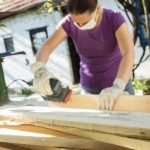A well-maintained home is not only a source of pride for homeowners but also an important investment. One of the significant ways to improve the value of a home is through strategic home improvements, and one such improvement that can have a considerable impact is installing a new roof.
In this article, we will explore the question: does a new roof improve home value? We will discuss the importance of maintaining a home and how various improvements, specifically a new roof, can significantly enhance its value.
The benefits of installing a new roof are vast and impactful. From improved energy efficiency to increased curb appeal, and enhanced structural integrity, a new roof can transform the overall value of a property. Factors such as the condition of the roof play a crucial role in determining the market value of a home. This article will delve into these factors and how they affect the overall property value.
Furthermore, we will analyze the cost of installing a new roof and compare it to the potential increase in home value to determine whether it is worth the investment. Additionally, we will discuss how a new roof enhances curb appeal and creates positive first impressions on potential buyers.
Lastly, we will highlight the long-term durability that comes with a new roof and its impact on maintaining and increasing property value. Stay tuned as we examine in detail how investing in a new roof can indeed elevate the overall value of your home.
The Benefits of a New Roof
A new roof can provide numerous benefits for homeowners, from improved energy efficiency to enhanced curb appeal. Here are the key advantages of installing a new roof:
- Improved Energy Efficiency: A new roof with modern materials and proper insulation can help reduce energy consumption by maintaining a more consistent indoor temperature. This can lead to lower heating and cooling costs, making it an attractive feature for potential buyers.
- Increased Curb Appeal: One of the most obvious benefits of a new roof is the immediate impact it has on the overall appearance of a home. A well-maintained and visually appealing roof can significantly enhance the curb appeal of a property, making it more attractive to potential buyers.
- Enhanced Structural Integrity: A new roof provides better structural support and protection for the entire home. It can help prevent water leaks, mold growth, and other issues that could compromise the integrity of the property. This added protection can increase the longevity of the home’s structure, which is a major selling point for buyers.
The condition of a home’s roof is often a crucial factor in determining its overall value. An old or deteriorating roof can have a negative impact on a property’s worth, while a new roof can significantly increase its value. Whether it’s through improved energy efficiency, enhanced curb appeal, or better structural integrity, investing in a new roof does indeed improve home value.
In addition to these benefits, a new roof also enhances the safety and security of a home by providing better protection against weather elements such as strong winds, heavy rain, and snow. This added level of security and peace of mind is something that many potential buyers look for when considering their purchase.
Therefore, getting a new roof is not only an investment in improving the aesthetic appeal but also in ensuring the long-term durability and functionality of your home.
Factors That Affect Home Value
A new roof can play a significant role in increasing the value of a home. When it comes to property value, the condition of the roof is one of the key factors that potential buyers consider when making their purchasing decision. Here are some ways in which a new roof can impact the overall property value:
- Structural Integrity: A new roof contributes to the structural integrity of a home. It ensures that the property is well-protected from environmental elements such as rain, wind, and snow, thus reducing the risk of damage to the interior and exterior of the house.
- Energy Efficiency: A new roof with modern, energy-efficient materials can help reduce heating and cooling costs for homeowners. This factor can be attractive to potential buyers who are looking for long-term savings on their utility bills.
- Maintenance Costs: An updated roof typically means lower maintenance costs for a homeowner in the near future. This can be an appealing feature for prospective buyers, as they would have peace of mind knowing that they won’t have to incur additional expenses for repairs or replacements immediately after purchasing the property.
Cost vs Value
When considering home improvements, it is essential to weigh the cost against the potential increase in home value. Installing a new roof is no exception, as it can have a significant impact on the overall value of a property. This section will analyze the cost of installing a new roof and compare it to the potential increase in home value to determine the return on investment.
Cost of Installing a New Roof
The cost of installing a new roof can vary depending on factors such as the size of the home, the materials used, and the labor involved. It is important to research and obtain quotes from reputable roofing companies to get an accurate estimate. While the initial cost may seem daunting, it is essential to consider the long-term benefits and durability of a new roof.
Potential Increase in Home Value
A new roof has the potential to significantly increase the overall value of a home. Potential buyers are often willing to pay more for a property with a new or well-maintained roof due to its aesthetic appeal and structural integrity. Additionally, a new roof can enhance energy efficiency, which can be an attractive feature for prospective buyers.
Determining Return on Investment
To determine the return on investment for installing a new roof, it is crucial to consider both tangible and intangible benefits. Tangible benefits include any increases in property value or potential energy savings, while intangible benefits may include improved curb appeal and peace of mind knowing that the home is structurally sound.
By weighing these factors against the cost of installation, homeowners can make an informed decision about whether investing in a new roof is worth it from a financial perspective.
Ultimately, while installing a new roof can be costly upfront, its potential impact on increased home value makes it a worthwhile investment for homeowners looking to improve their property’s overall worth. Furthermore, with added durability and enhanced curb appeal, homeowners may enjoy several additional benefits that contribute positively towards their return on investment when considering such an improvement.
Curb Appeal and First Impressions
A new roof plays a crucial role in enhancing the curb appeal of a home and making a positive first impression on potential buyers. The roof is one of the first things that people notice when they approach a property, and its condition can significantly impact the overall visual appeal of the home.
A worn-out or damaged roof can give the impression that the entire property is not well-maintained, which can deter potential buyers. On the other hand, a new and well-maintained roof can instantly attract buyers and create a favorable first impression.
In addition to improving aesthetics, a new roof also conveys a sense of security and stability to potential buyers. It signals that the property has been well taken care of and is less likely to have underlying issues. This peace of mind can be a major factor for buyers when making their decision, as they are more likely to consider purchasing a home with a new roof that doesn’t require immediate maintenance or replacement.
According to Remodeling magazine’s 2020 Cost vs. Value report, homeowners can expect to recover an average of 60-70% of their investment in a new roof when it comes time to sell their home. This demonstrates that not only does a new roof improve home value by enhancing curb appeal and making a positive first impression on potential buyers, but it also has financial benefits in terms of return on investment.
| Benefits | Data |
|---|---|
| Improved energy efficiency | Increase curb appeal |
| Enhanced structural integrity | Financial benefits in terms of ROI |
Long-Term Durability
A new roof is not only about appearances or energy savings; it also plays a critical role in the long-term durability and maintenance of a home. The durability of a roof is important, as it protects the entire structure of the home from the elements, such as rain, snow, wind, and sunlight. A well-maintained roof can prevent water damage, mold growth, and other issues that can significantly decrease a property’s value.
According to Remodeling Magazine’s 2020 Cost vs. Value Report, a new roof has an average return on investment (ROI) of 60.9%. This means that homeowners can expect to recoup more than half of the costs associated with installing a new roof.
Additionally, if you are planning to sell your home in the near future, having a new roof can be a major selling point for potential buyers who would rather not deal with the hassle and cost of replacing the roof themselves.
In terms of maintenance, a new roof typically requires less upkeep than an old or damaged one. With regular inspections and preventative maintenance, a new roof can last anywhere from 20 to 50 years depending on the material used. This means that investing in a new roof now can save homeowners money on maintenance and repairs in the long run.
| Fact | Data |
|---|---|
| Average ROI of installing a new roof | 9% |
| Roof lifespan with regular maintenance | 20-50 years |
Appraisal and Market Value
When it comes to determining the value of a home, the condition of the roof plays a critical role. Appraisers and potential buyers alike consider the age, quality, and overall condition of the roof when assessing the market value of a property. Therefore, investing in a new roof can have a significant impact on both the appraisal and market value of a home.
Appraisal Considerations
During the appraisal process, appraisers evaluate various aspects of a property to determine its worth. The condition of the roof is one of these key factors. A new roof can signal to appraisers that the home has been well-maintained and is less likely to require costly repairs in the near future. This added assurance can result in a higher appraised value for the property.
Furthermore, an old or damaged roof can negatively impact an appraisal. Appraisers may take note of any issues with the roof and adjust their valuation accordingly. In some cases, they may even recommend repairs or replacement before finalizing their assessment.
Market Value Impact
When putting a home on the market, sellers often look for ways to increase its value and attract potential buyers. One effective way to achieve this is by installing a new roof. A modern, well-maintained roof can significantly enhance the overall appeal of a property, making it more attractive to prospective buyers.
In addition to improving curb appeal, a new roof can also serve as a selling point that sets a home apart from others on the market. Buyers are often willing to pay more for a property with little to no maintenance required in terms of its roofing structure.
Therefore, addressing any roofing concerns before listing a home for sale can lead to increased buyer interest and higher offers, ultimately impacting its market value positively.
The Bottom Line
In conclusion, a new roof can significantly improve the overall value of a home. The benefits of installing a new roof are extensive and impactful; from enhanced energy efficiency to increased curb appeal, and improved structural integrity, the advantages are clear. As one of the most crucial factors that affect home value, the condition of the roof plays a significant role in determining the overall worth of a property.
When considering the cost vs. value aspect, investing in a new roof proves to be a wise decision for homeowners. While there is an initial cost associated with roof replacement, the potential increase in home value makes it a worthwhile investment in the long run. Additionally, a new roof enhances curb appeal and leaves a positive first impression on potential buyers, which is essential for selling a property at an optimal price.
Furthermore, the long-term durability and maintenance provided by a new roof add intrinsic value to the property. With its impact on appraisal and market value, as well as its role in influencing selling prices, it’s evident that investing in a new roof does indeed improve home value significantly.
In summary, installing a new roof not only ensures the safety and well-being of homeowners but also serves as an essential asset that contributes to the overall value of their property.

I’m thrilled to have you here as a part of the Remodeling Top community. This is where my journey as an architect and remodeling enthusiast intersects with your passion for transforming houses into dream homes.





